Even the best card player will be stymied if dealt a duff hand. Arriva, which in 2003 emerged as the winning bidder to run train services in Wales for a 15-year stint, has long insisted it had a ropey deal, thanks to the now-defunct Strategic Rail Authority (SRA).
It was SRA edicts that resulted in things being done on the cheap, claimed Arriva. New rolling stock? Forget it, said SRA, which was abolished two years later. Provision for increased passenger demand? Never factored in. Yet 18 million passenger journeys on the Welsh network in 2003 had become 29 million by 2013. Blame SRA for our operational shortcomings has long been Arriva’s mantra.
Everyone hopes for better when the next franchise is let. It’s all change since 2003 - now the Welsh Government is taking over the process (although it has managed the existing Arriva operation since 2006). What’s more, it is seeking to run a new, not-for-profit model, similar to Transport for London.
Some think it’s good that Wales is assuming control, that it will try to nail down the best possible terms and conditions. Others are less sure. This is a tricky and complex operation, and there are misgivings about the Welsh Government’s ability to rustle up enough good negotiators.
Arriva Trains Wales Policy Director Roger Cobbe is looking on the bright side. He says the Government has assembled people “with expertise of working on DfT franchises” to work alongside its own officials.
Yet some rail experts are sceptical, among them Professor Stuart Cole, emeritus professor of transport at the University of South Wales. He warns that there’s a difference between being a consultant (a hired hand) and a permanent member of staff with a career commitment to improvement.
It’s one of many issues that surfaced following the House of Commons’ Welsh Affairs Committee (WAC) review of the Wales and Borders franchise - its past, present and future. The report is a mix of painful history and optimism, flavoured with the sense of a journey into the unknown.
The process of shifting responsibility for commissioning and operating the franchise, known as a Transfer of Functions order, is still lumbering on. It should be completed by late 2017-early 2018, according to a Welsh Government spokesman, so WAC wants to keep a sharp eye on what’s happening, on which areas are in dispute, and to be told when it’s completed.
One outcome is that Westminster MPs will no longer have any direct scrutiny role of the Welsh rail operation. WAC has suggested establishing a means whereby MPs can write to the Cabinet Secretary on behalf of unhappy constituents who have used Wales and Border trains in England - and expect a meaningful response within 15 working days.
Everyone, everywhere, wants better services. Besides ATW, the country is served by three other operators: Great Western Railway (with services from south Wales to London and the South Coast of England); Virgin Trains (running trains from Holyhead to Birmingham or London); and CrossCountry (operating between Cardiff and the Midlands).
Wales and Borders franchise - and with it the chance to run the South Wales Metro - has attracted four bidders: Abellio Rail Cymru; Arriva Rail Wales; KeolisAmey; and MTR Corporation (Cymru) Ltd. And should all the offers fall below expectation, WAC has a fall-back plan.
“If there’s no confidence in any bidder, we recommend considering a management contract operated by the Welsh Government through Transport for Wales for at least five years,” it says.
Who knows how the bidding will pan out, given that Welsh Government transport minister Ken Skates is intent on running the new franchise like a concession?
“Transport for Wales will only let those contracts that it has to on a commercial basis,” he says. “Where they do, the profits… will be capped, with excess reinvested into the wider transport system, driving down costs for the passenger.”
Wherever possible, other services will be run through a not-for-profit model, Skates adds. Once the franchise is let, he expects Transport for Wales to oversee managing aspects such as marketing and integrated ticketing.
Expect plenty of horse trading over the next year. And how high will the bar be set, in terms of standards? Might some contenders drop out?
That actually happened in 2003. Cole told WAC that the franchise was let “with a low level specification” - no allowance for growth in passenger numbers, and no extra train capacity. “One competitor pulled out because of what it saw as running down the railway in Wales by the SRA,” he said.
Wales has long felt hard done by in terms of spending. In 2003, it was out of luck again because, as Cobbe pointed out to the Commons committee, SRA was “wrestling with… West Coast modernisation and… found itself with the most colossal budget crisis”.
Thus it let a ‘minimally specified franchise’ to preserve continuity of services. Moreover, Cobbe added, once Arriva got the nod (as cheapest bidder), SRA looked for “anything that could be done to reduce the support cost”. He explained to MPs: “Things were omitted from the franchise, with capacity for growth being the most significant.”
Between them, the Welsh Government and Arriva tried to make the best of a bad job. Skates told WAC that his Government has invested around £30 million annually to cope with increased demand, with ATW pumping in a total of £35m.
Arriva rejigged its timetable in 2005, putting in 20% more services “at our own commercial risk… moving capacity to where it was needed… and where it would earn more,” Cobbe says. It was able to add a small number of older diesel units. And yet, when demand started rising steadily in the late 2000s, “the pips began to squeak”.
ATW had to soldier on without any prospect of getting any more rolling stock, new or old. Typically, its trains were 27 years old, but some were as old as 40 - a pretty hopeless situation, yet one that seems unlikely to be repeated. “Awarding the franchise based on a zero-growth contract was a huge failure,” acknowledges the WAC report.
What sort of a fist ATW has made of its 15-year deal depends on whom you ask. It’s widely felt that Arriva’s engineers have performed minor miracles in keeping an aged fleet more or less on the rails. And punctuality has improved over time - from 78% of trains arriving within five minutes of intended time in 2003 to over 92%, according to recent figures.
But while ATW Managing Director Ian Bullock claims his company has halved delays over the years, he concedes that the Cambrian line “has dipped in performance” and that some Marches and Valleys services have deteriorated.
Almost everyone agrees that the new franchise should be more demanding. Until now Arriva has faced fines only for poor time-keeping. There’s been no imperative to push up passenger numbers, reduce journey times, or even to have clean trains.
Skates says complaints have been “pretty fundamental stuff”’ - about rolling stock quality, too few seats and the standard of refreshments and toilets. “It’s vital there are incentives and contractual obligations that ensure customers receive a good level of service,” says WAC.
There’s a broad assumption that the franchise map will remain intact - including the routes that cross into England - although some witnesses to WAC’s review still worry that existing Arriva territory could somehow be eroded.
“The worst thing of all would be if franchising led to the severing of much-needed services - to places like Birmingham, Manchester, Liverpool, Bristol,” says Cobbe.
According to Rail Delivery Group Policy Director Elizabeth De Jong, any remapping that forces a change of trains at the border “would make people less likely to use trains and disconnect economic centres”’ It could harm the franchise’s viability, she says, adding: “It would be smaller, and that might impact on the number of bidders.”
Arriva-run services from Shrewsbury to Manchester and Birmingham are profitable, which (as Cole points out) means the Welsh Government’s subsidy is reduced. However, Skates doesn’t anticipate the franchise map shrinking - indeed, quite the reverse.
“We’ve reached agreement, in principle, for it to operate services from destinations in Wales to Bristol and Liverpool,” he told the committee. Meanwhile WAC has recommended looking into other train operators extending long-distance services into Wales, “where efficient and cost-effective”.
If bidders are to invest seriously, the consensus is that any new franchise should run for at least a decade - WAC suggests ten to 15 years, “given the improvements required”. Skates considers 15 years “would enable continuity”, adding: “But termination rights should be built in, in case of non-compliance or default.”
Meanwhile, WAC says the Welsh Government needs to push ahead with securing new rolling stock. But this, as anyone in the rail industry knows, is an excruciatingly slow business - up to three years for electric trains and four for diesels, according to Cole.
WAC says one way forward is for the UK and Welsh Governments to work together - maybe tag on to orders already in the pipeline, such as the DfT’s train order for the Northern franchise. Moreover, it suggests that where rolling stock is freed up by completed new infrastructure projects, Wales should have first refusal on these trains.
The future for Welsh rail infrastructure remains another unknown. One function being retained by the UK Government is its power to direct Network Rail, much to Skates’ chagrin. He’d like that power devolved, as has happened in Scotland. “Historical underfunding of the rail network within Wales should be dealt with in the next Control Period,” he says.
Westminster will fully fund electrification of the Great Western Main Line, including the section between Cardiff and Bridgend. But dismay remains widespread that running wires to Swansea has been shunted back, although the Welsh Government “continues to press” Westminster over a timescale for “honouring their commitment”.
The UK Government will also chip in £125m towards electrifying the Cardiff Valleys Lines - four routes linking Cardiff with Treherbert, Aberdare, Merthyr and Rhymney. However, Cole feels that’s a poor deal, telling WAC that is “not a fair proportion”.
Electrification is phase 2 of the South Wales Metro project. The cost of this is currently estimated at £734m, although the Welsh Government says the final bill will be determined during procurement negotiations. And this scheme still begs key questions… notably, will it adopt heavy rail or light rail, or a combination supplemented by integrated rapid bus services?
Despite all the Brexit convulsions, Wales is still seeking a £110m contribution from the EU towards Metro Phase 2.
“Triggering Article 50 won’t impact on the Welsh Government’s ability to submit funding bids,” a spokesman says.
“The European Commission has said it will continue to administer UK programmes while Brexit negotiations are taking place. We anticipate the South Wales Metro bid will be approved before the UK leaves the EU.”
Rail Minister Paul Maynard has promised Wales won’t be left in the lurch: “If the Welsh Government makes bids into the EU while we’re still a member and is successful… then after we have left, we’ll guarantee that funding.”
One urgent priority for Wales is modernising Cardiff Central station. Bullock told MPs that it’s unfit for purpose “in terms of the number of people it carries or tries to move during special events”, which can be up to 45,000. That’s aside from the daily pressures - during rush hour the staircases, subways, concourse and ticket barriers are suitable only for a station carrying half the number of passengers, says Cobbe.
The cost? That depends on the design, which hasn’t been decided, although it is a work in progress with the DfT and Network Rail. Bullock says that while time, effort and money have gone into improving basic facilities at 246 stations under ATW’s wing, other aspects such as accessibility still need to be tackled. All of this must wait until the next franchise, says Skates.
Up country, much needs to be addressed in North Wales. The average train speed from Bangor to Manchester is 37mph, from Holyhead to Bangor 34 mph, and from Wrexham to Liverpool “an interstellar 24mph - actually slower than a horse”, according to Ashley Rogers, who chairs the region’s business council.
Small wonder that rail share of the daily commute can be as low as 1% in some areas. One way forward would be to install double tracks - Cole claims “a lot of padding” in timetables is caused by single tracking, because train companies want to avoid fines for late running. Doubling could increase frequencies and cut journey times.
WAC says electrification in North Wales must become a priority. Some think that the best starting point could be upgrading the Wrexham-Bidston line and routes between Holyhead and Crewe, which would improve connections to cities in the North West of England.
The Welsh Government claims that since 2011, only around 1.5% of money spent on rail improvements across England and Wales has been solely on the Wales Route areas. If so, that’s a pitiful amount.
Will that improve? Only time will tell what Network Rail reckons it can afford.
This feature was published in RAIL 822 on 11th March 2017

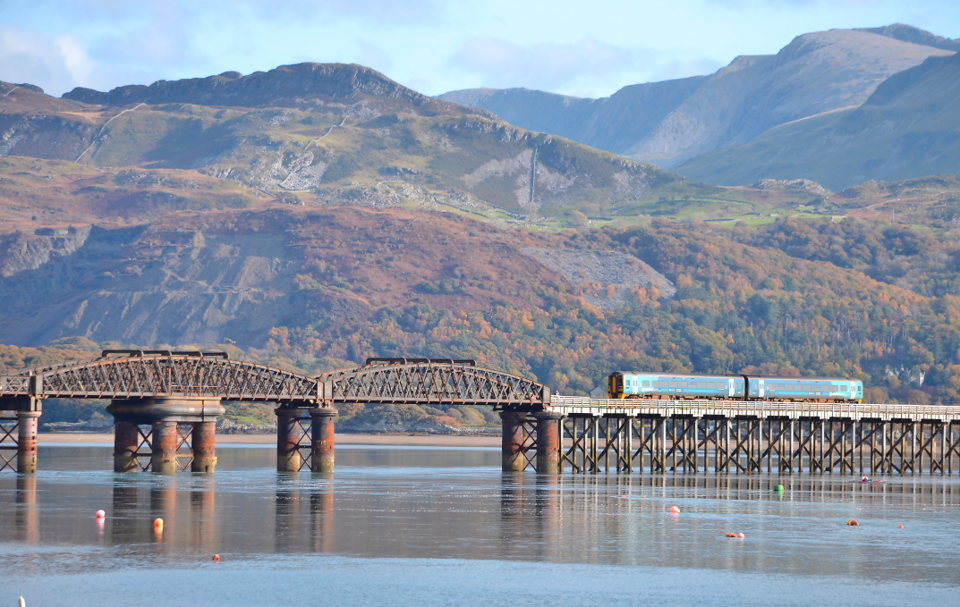
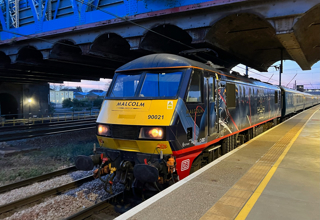
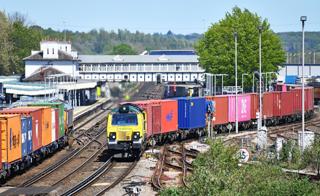
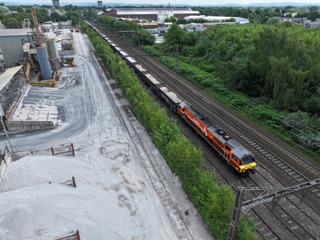
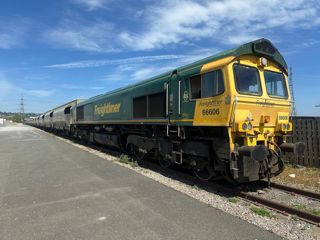
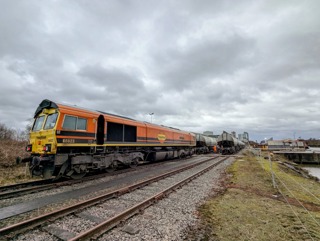










Login to comment
Comments
No comments have been made yet.